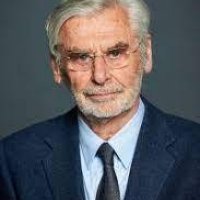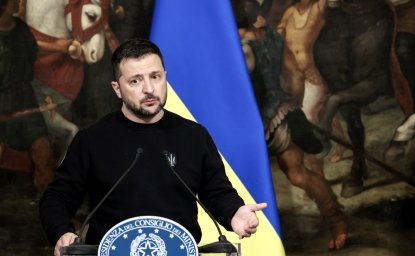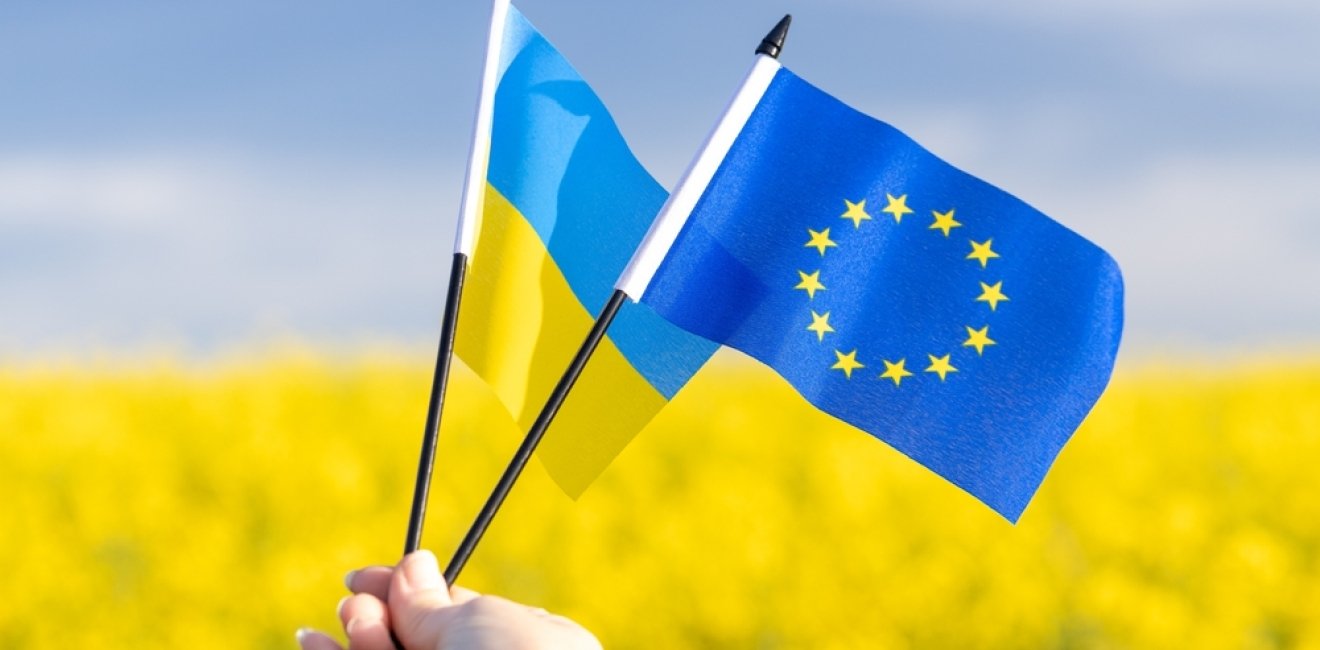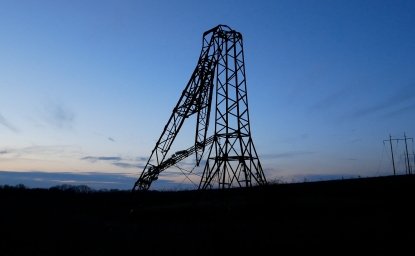
A blog of the Kennan Institute
INTERVIEWS BY MYKHAILO MINAKOV
In the throes of an ongoing war with Russia, Ukraine was awarded EU candidate status. Ukrainians’ European dream is now much closer to reality. What does that mean for the future of Ukraine and a united Europe? In your opinion, what are the next steps for Kyiv and Brussels over the next two to three years? Four experts answer our questions.
Halyna Yanchenko
Probably no other country has gained EU candidate status at such a high cost as Ukraine. We have literally paid for it with our blood.
It is an important step toward realizing Ukrainians’ European dream and the final liberation of Ukraine from Russia’s zone of influence. It will put paid to Moscow’s propagandistic thesis that Ukraine allegedly is “part of Russia.” That myth has been fed to the democratic world for many years. It is finally dead.
Ukraine is part of Europe. Our candidacy is one of the most important decisions for our country of the past thirty years. Today the EU has recognized Ukraine's achievements in democracy building and protecting democratic values, and is ready to support the further development of our economy and society.
What’s next? We will continue bringing our legislation and governmental procedures up to European standards. In fact, this work has been going on for more than a decade and will be continued even more actively.
Among the benefits of being an EU member candidate, I would note the opportunities to participate in financial programs provided to countries preparing for EU accession. Also, we are looking forward to active sectoral integration that facilitates cooperation in various economic and financial spheres. For example, the liberalization of cargo transport regulations will strengthen trade relations. There are numerous such examples.
In achieving the status of EU member candidate, together with ongoing reform efforts, Ukraine will become more attractive to investors. Most important, the EU will treat investment in Ukraine not as part of the postwar reconstruction of a third country but as an investment in the well-being of a potential EU member.
Now we are working on a series of reforms so that we can start the next stage of substantive negotiations on EU accession. For example, continuing judicial reforms and implementing the anti-oligarch law are high priorities. I see no reason why Ukraine could not meet the requirements for EU accession in the near term.
Oleksandr Merezhko
Candidate status means that Ukraine is firmly on its way to becoming a full-fledged member of the EU. There are two scenarios: pessimistic and optimistic. In the pessimistic scenario, some European politicians will do everything to find a pretext to make Ukraine’s journey to full EU membership as long as possible. In the optimistic scenario, Ukraine’s accession will be viewed as a joint European project, and both sides will do everything they can to reach that goal.
The next step should be to start negotiations as soon as possible and to harmonize the Ukrainian legal system with the EU legal system.
Michael Emerson
The decision to grant candidate status to Ukraine, as also to Moldova, is of the highest geopolitical significance, even if it is only the symbolic beginning of a necessarily long and difficult process. This was not an easy political decision for the EU to make, with much opposition that had to be overcome in internal negotiations.
But for now the map of Europe is cleaned up. All of Europe except for today’s Russia and Belarus are in the EU, or are applicants, or are virtually/functionally in, such as Norway (and, for the UK, Johnson’s departure is good).
Except that Ukraine is still at war and losing territory. The outcome may be of the North Korea-South Korea permanent Cold War type, or, better, more like North Cyprus-South Cyprus, or, at best, like the East Germany-West Germany outcome, should a post-Putin’s Russia change.
Over a two- to three-year time horizon the priorities must be an acceptable end to the war and the beginning of reconstruction. The Ukrainian side presented an impressive recovery plan at Lugano on July 4–5. The process of adopting EU policies and laws, which has been ongoing since 2014 under the EU-Ukraine Association Agreement with the EU, will continue in parallel.
Still to be worked out is how many of the millions of Ukrainian refugees will opt to stay in the EU. They are welcomed virtually everywhere and integrate easily.
Michael Sohlman
Insofar as Ukraine continues to exist as an independent state, and the U.S. leadership is helming a unified response from the West despite some differences in approach and support among the EU member states, the question is the pace of the EU admission process. One risk is that an armistice would lower the pressure on those opposing Ukrainian membership. The promise made by Italian prime minister Mario Draghi, French president Emmanuel Macron, and German chancellor Olaf Scholz visit to Kyiv to support EU membership was a welcome signal for the Ukrainians but a poor substitute for the immediate delivery of critical weapons. It is an IOU with an undefined pay date. We know that admission negotiations can go on for a long time. The hurdles just within Ukraine are impressive, including the need to eliminate an entrenched culture of corruption, and the enthusiasm of EU farmers for a new member of the club is limited in light of Ukraine’s competitive advantage in agriculture.
The major challenge in the coming years will be the reconstruction of an incredibly devastated Ukraine. Here the EU will have an important role, but one that must be integrated into a wider intergovernmental effort. We have already seen different organizations jockeying for a leadership role.
The opinions expressed in this article are those solely of the author and do not reflect the views of the Kennan Institute.
Authors



Legal Scholar; Member, Verkhovna Rada of Ukraine



Kennan Institute
The Kennan Institute is the premier US center for advanced research on Eurasia and the oldest and largest regional program at the Woodrow Wilson International Center for Scholars. The Kennan Institute is committed to improving American understanding of Russia, Ukraine, Central Asia, the South Caucasus, and the surrounding region though research and exchange. Read more

Explore More in Focus Ukraine
Browse Focus Ukraine
Building a Thriving Ukrainian Design Community Now

Ukraine Seeks to End the War. What's Wrong With the “Peace Scenarios”?


